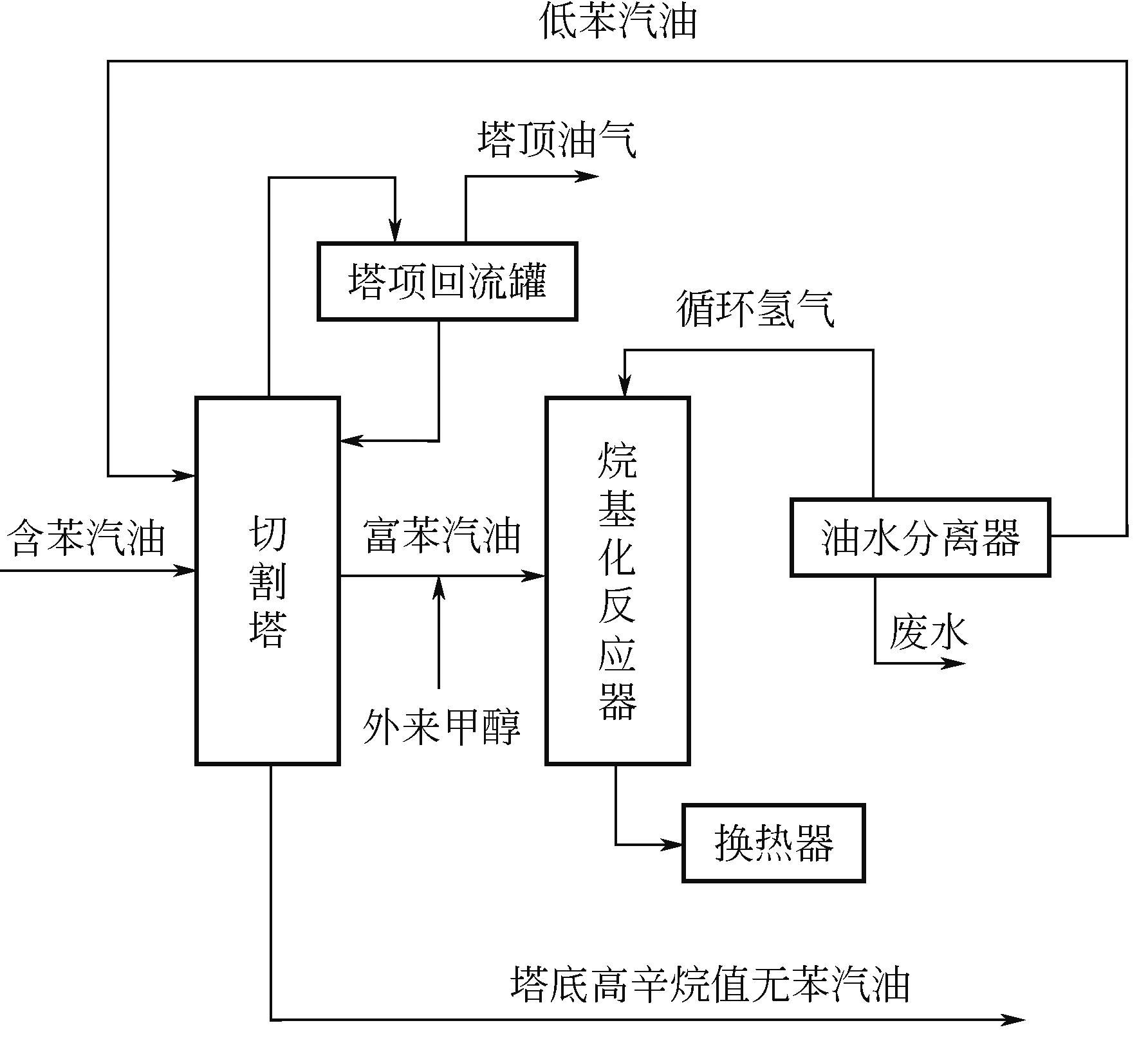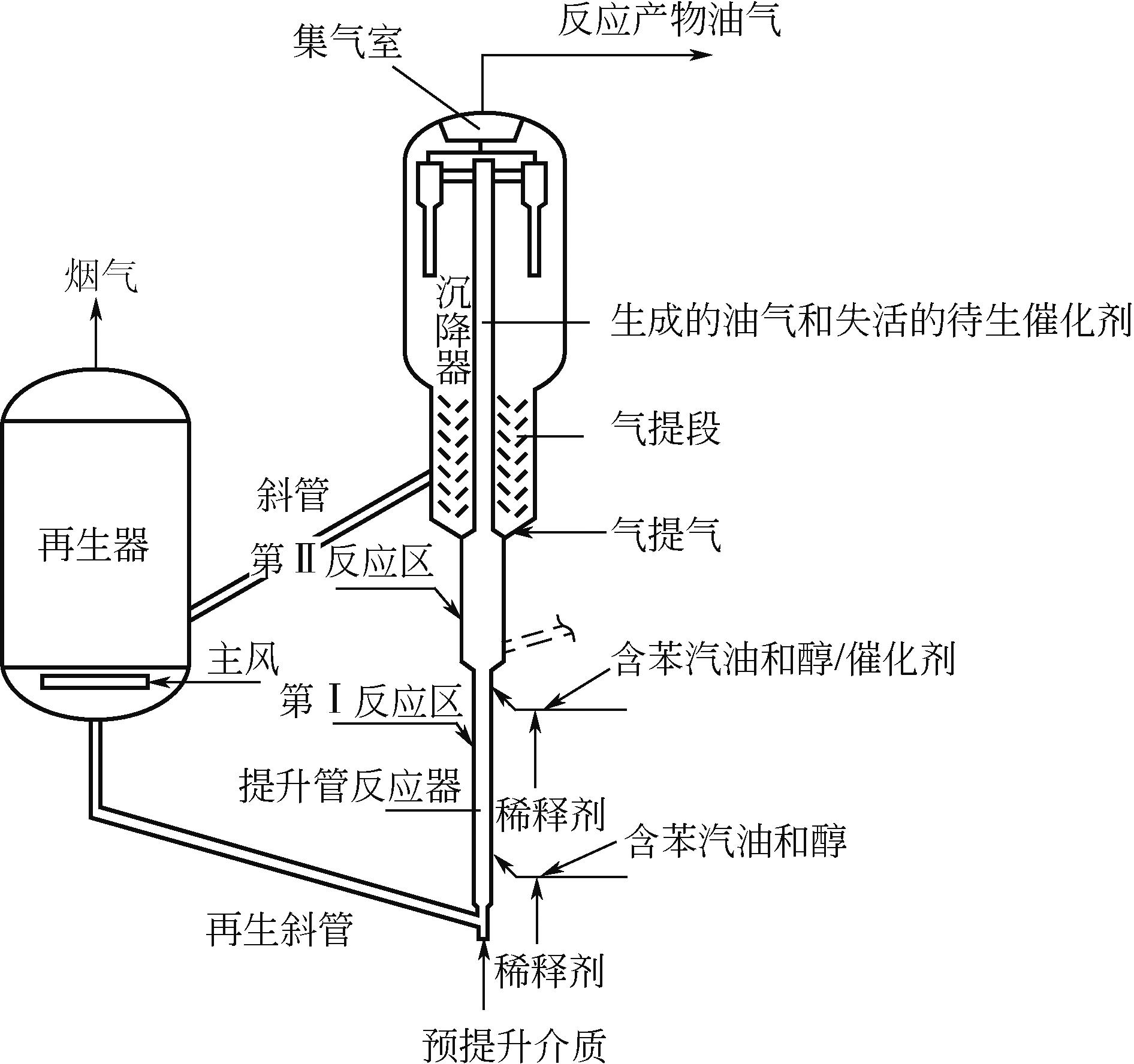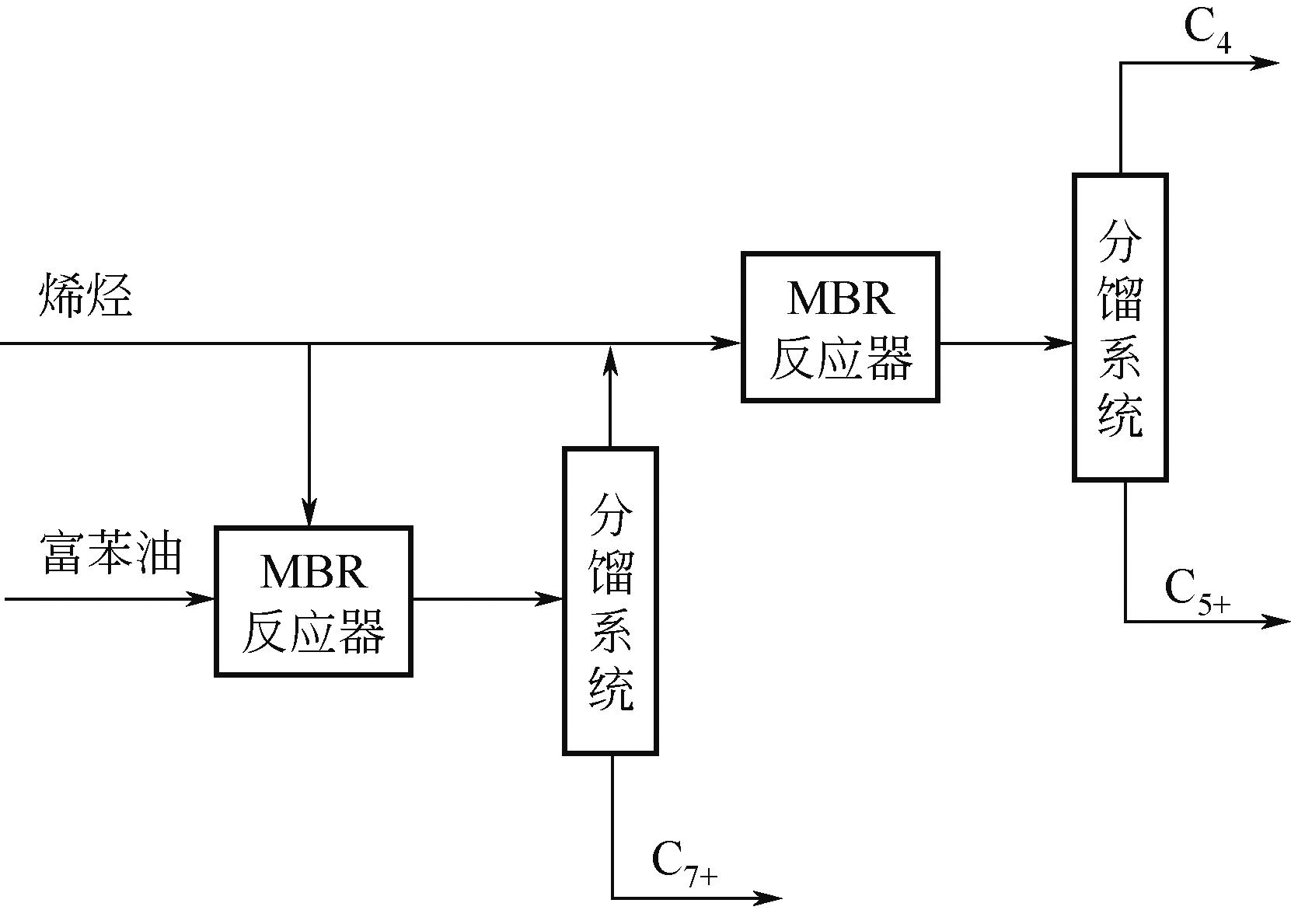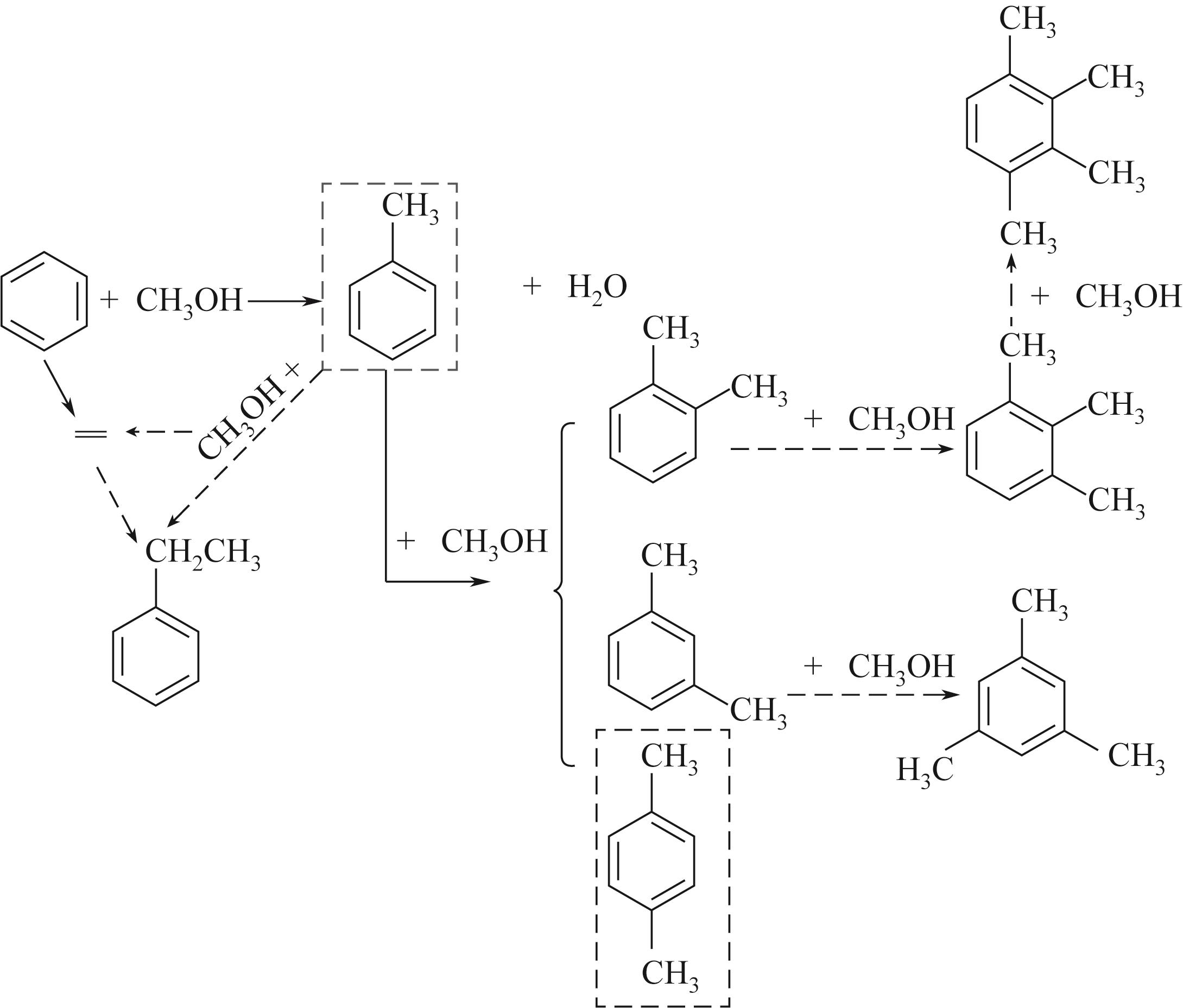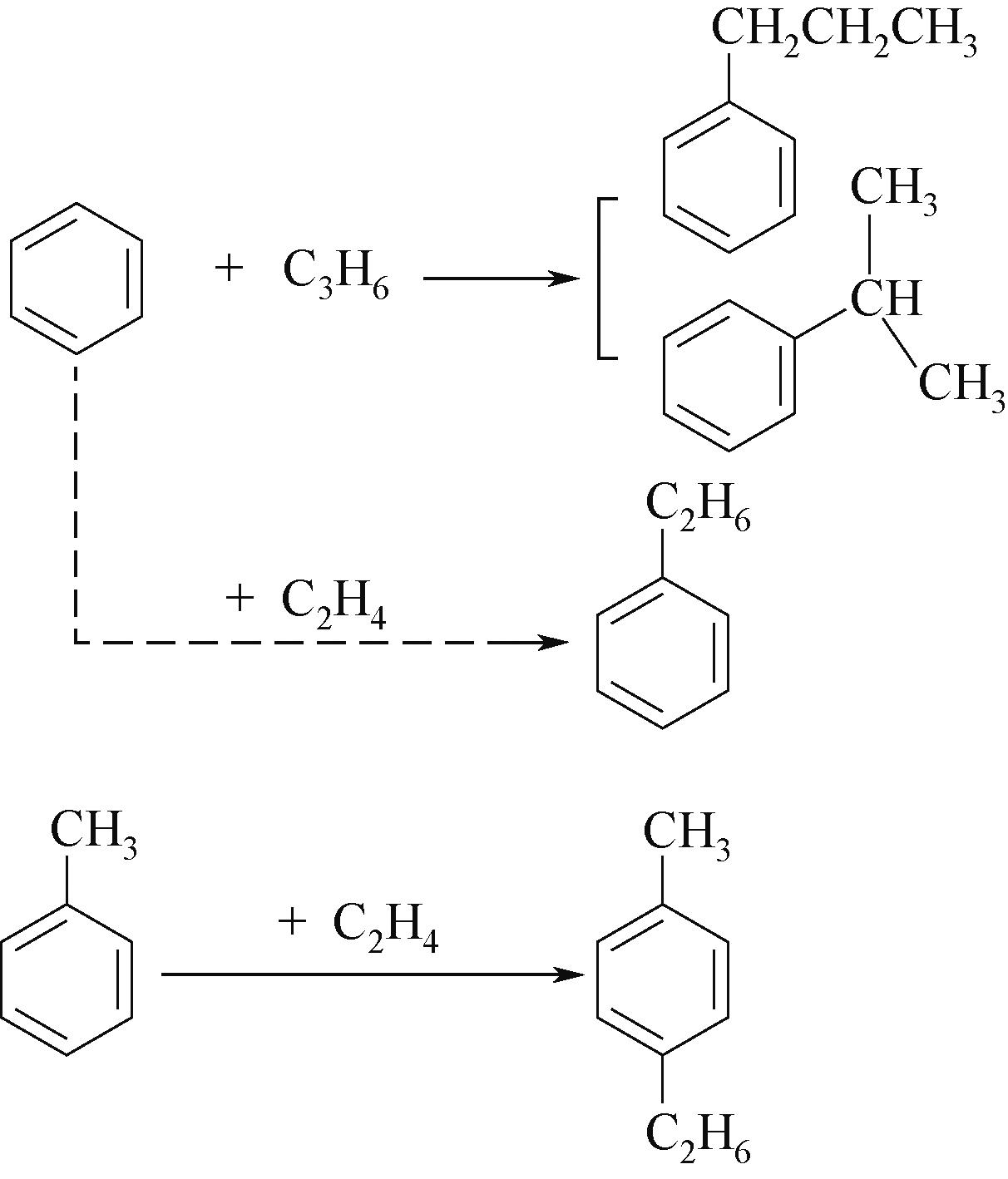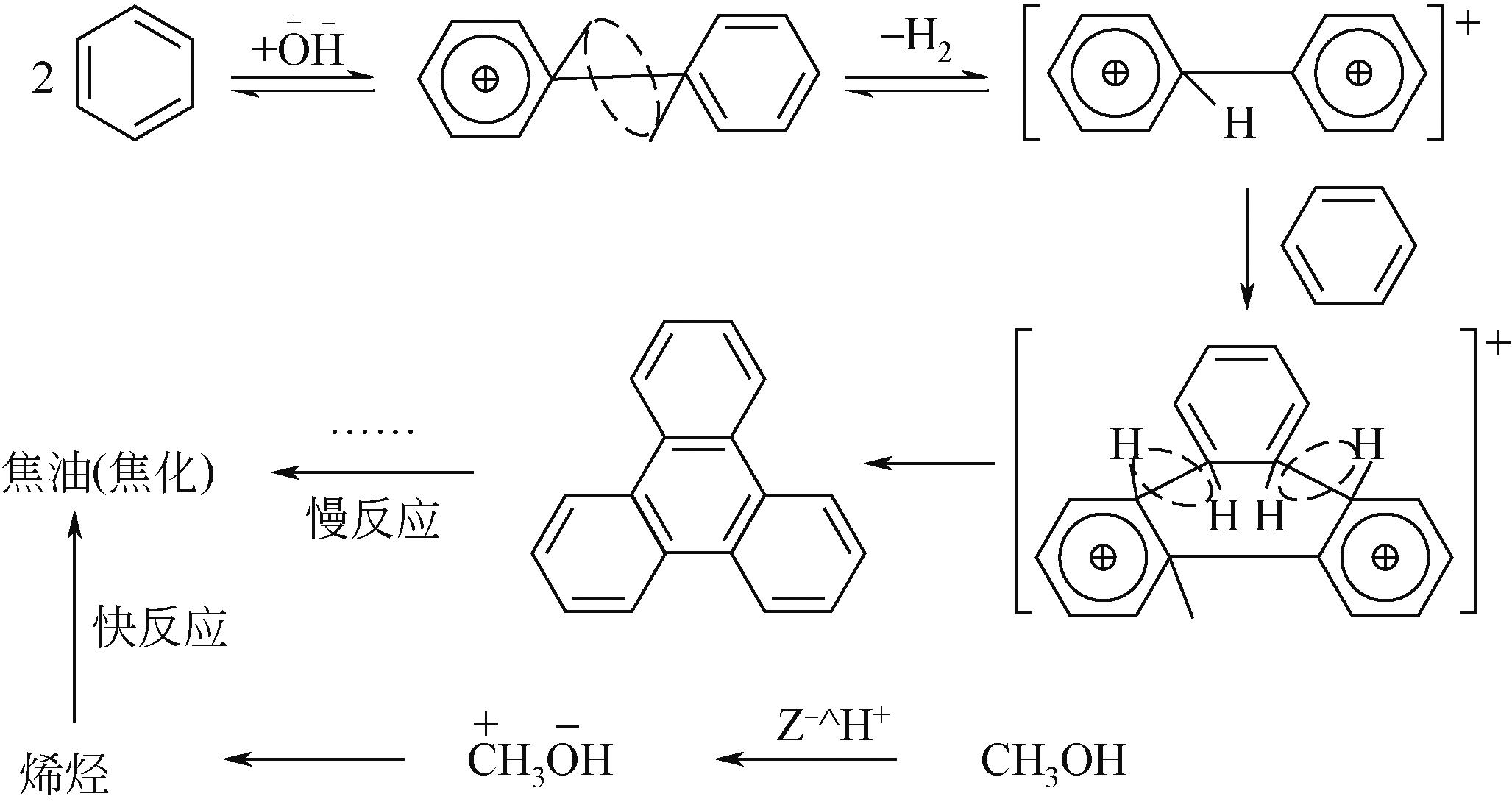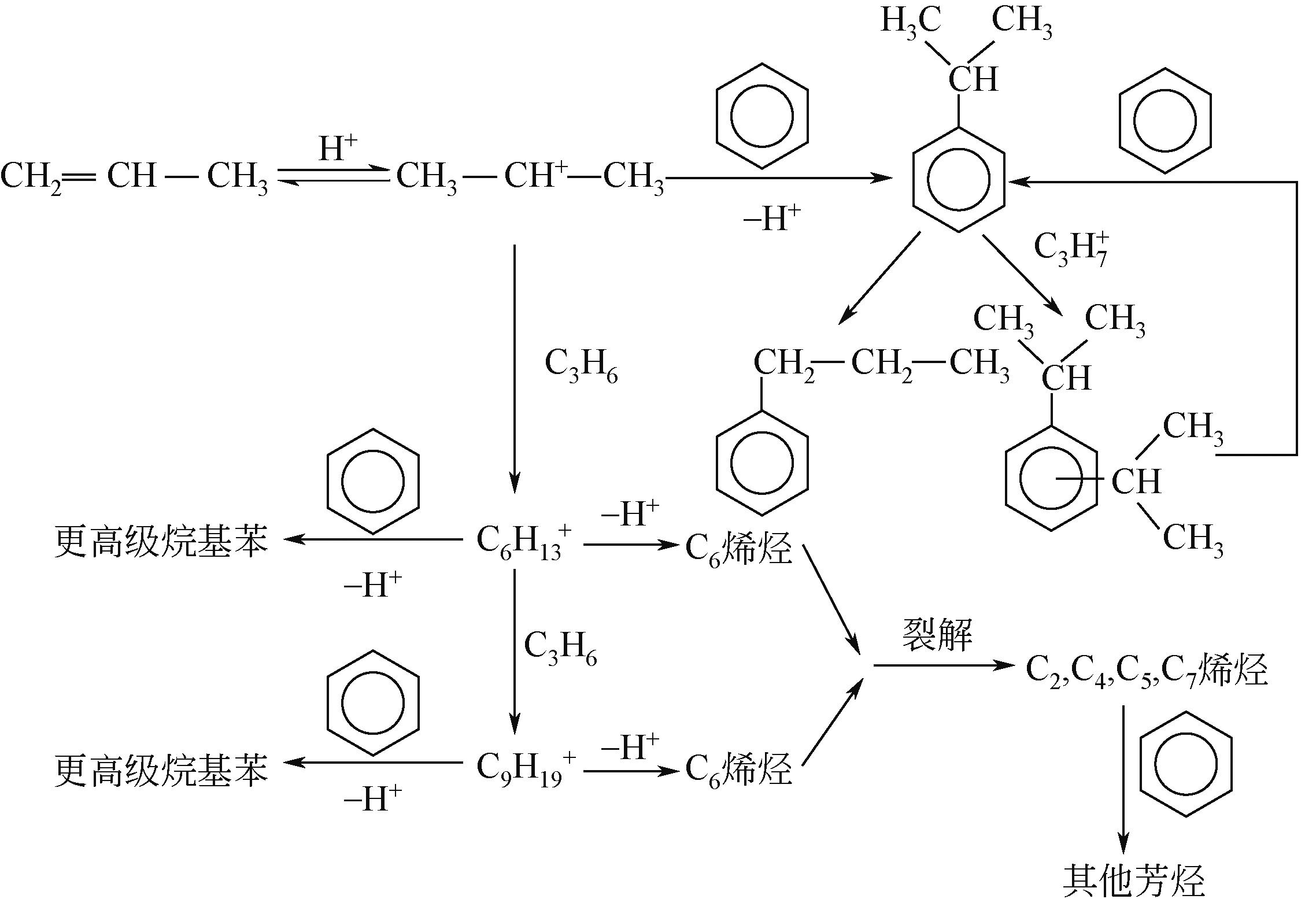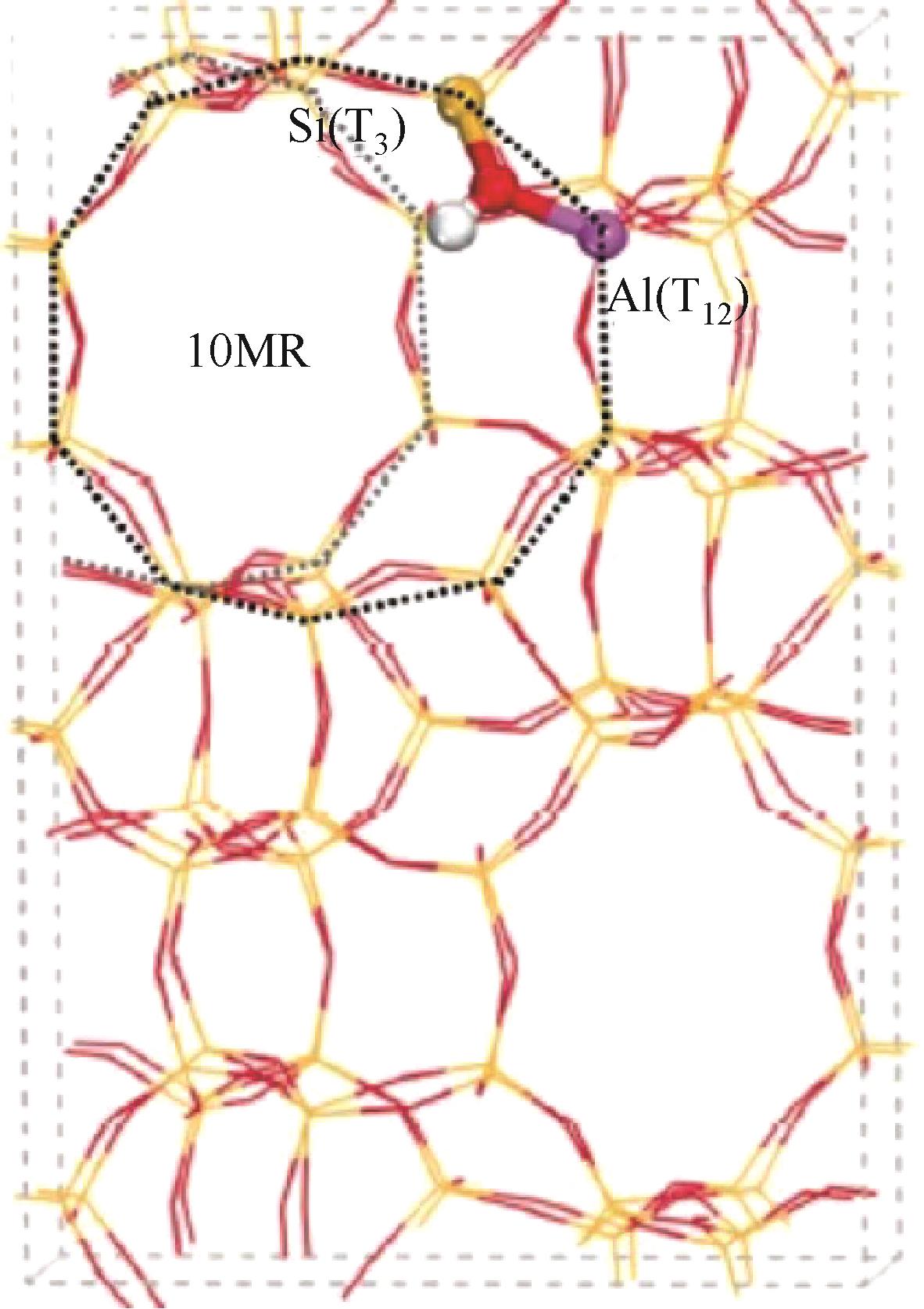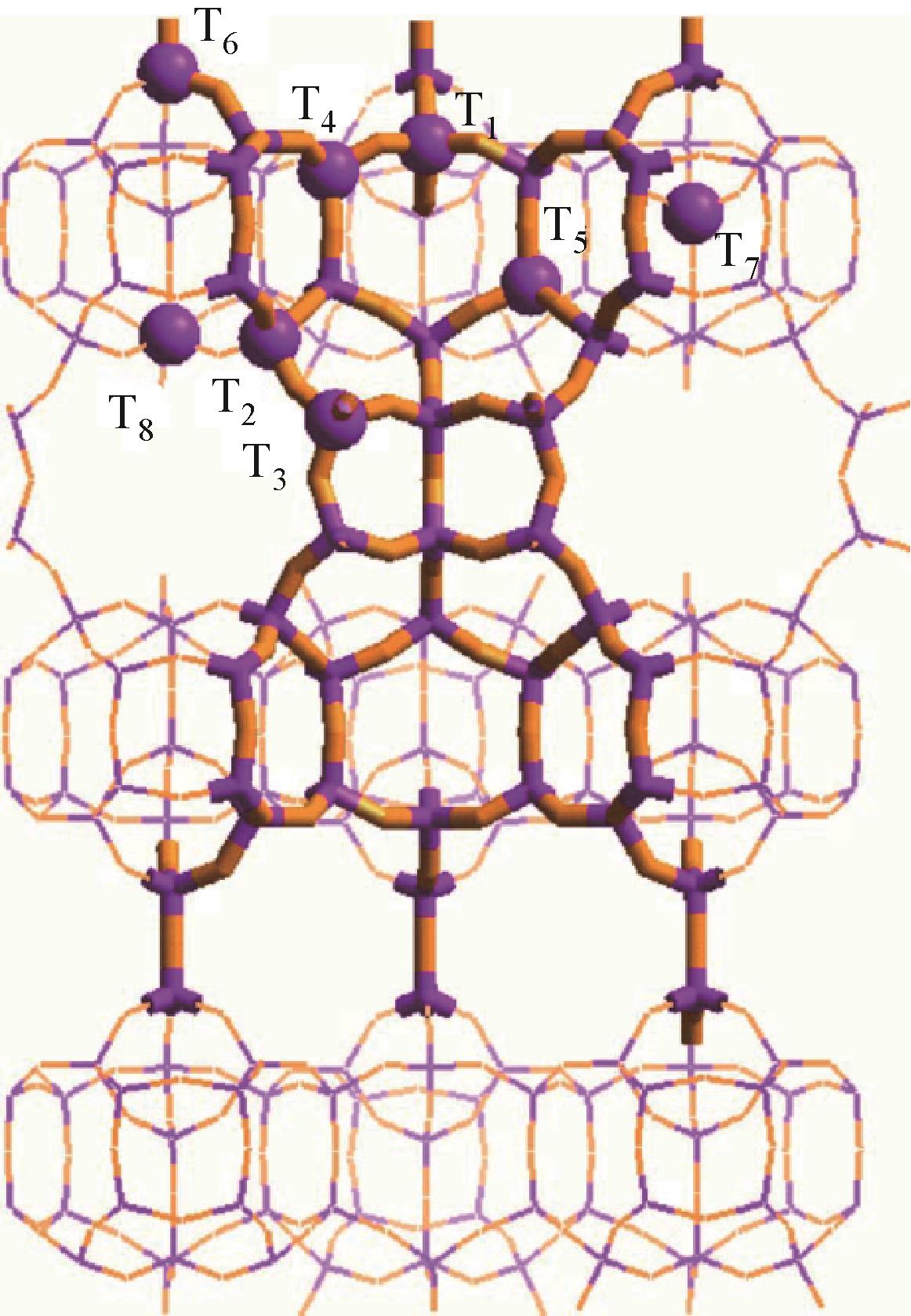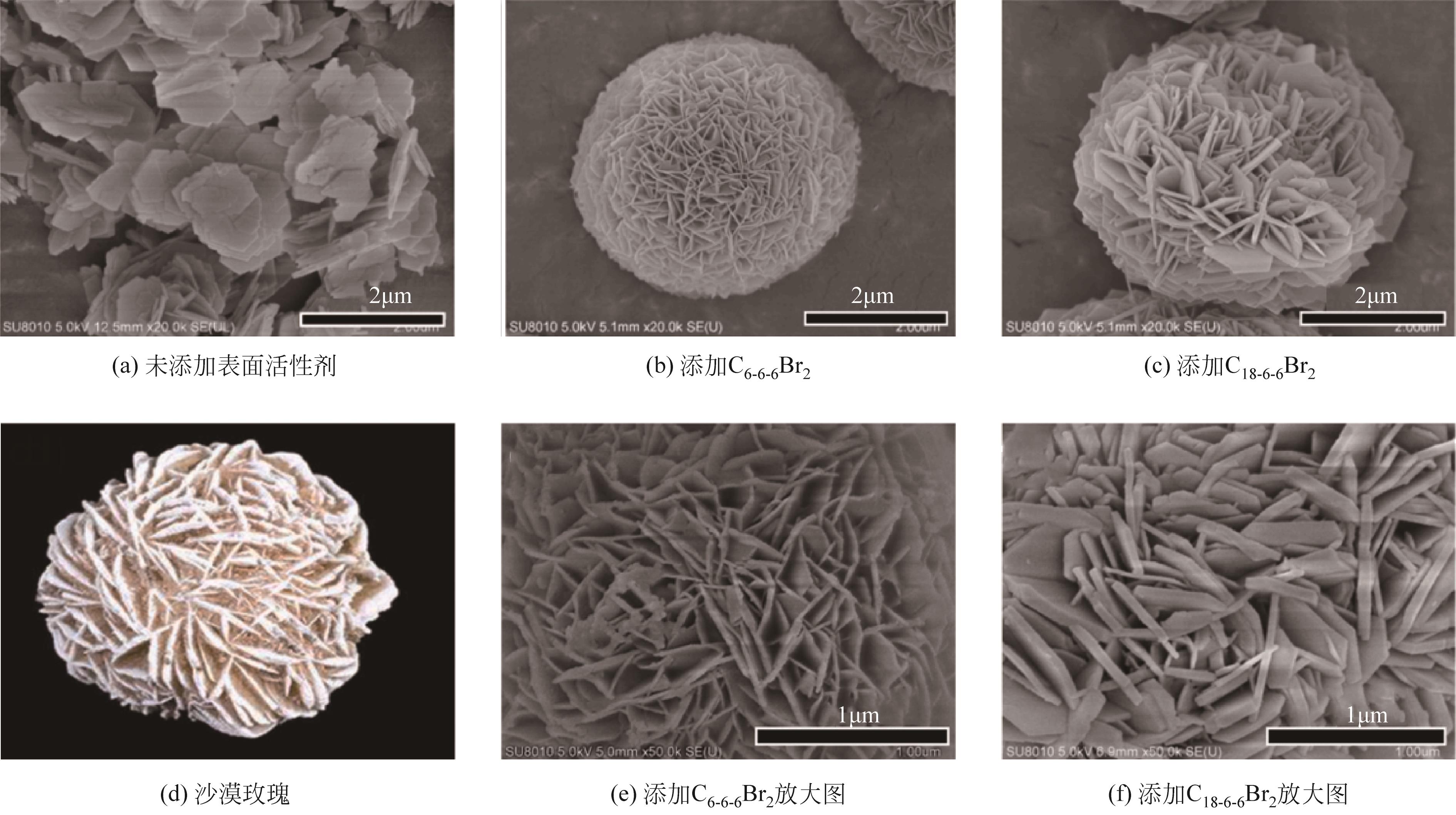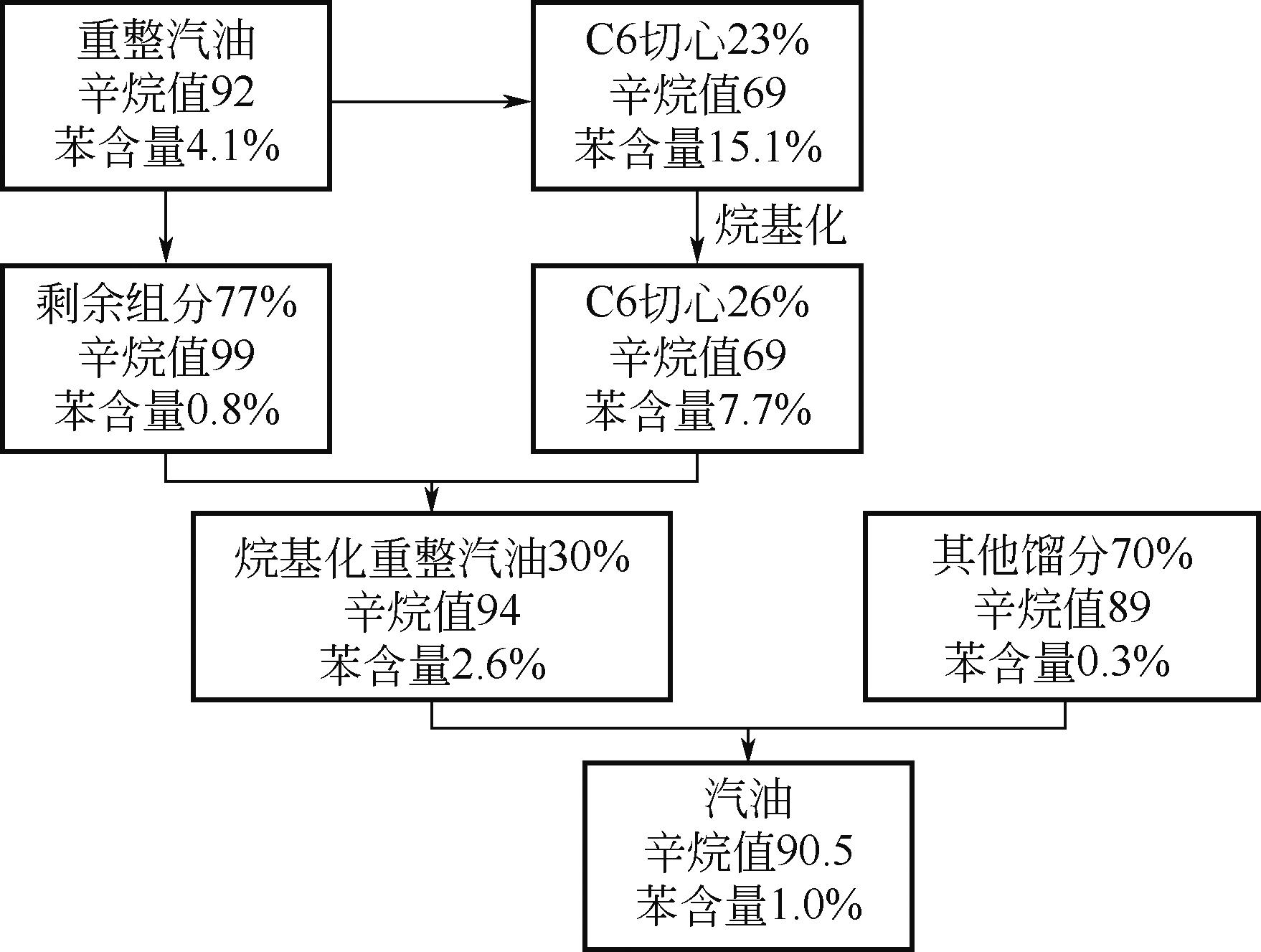Chemical Industry and Engineering Progress ›› 2023, Vol. 42 ›› Issue (5): 2371-2389.DOI: 10.16085/j.issn.1000-6613.2022-1204
• Industrial catalysis • Previous Articles Next Articles
Progress in alkylation of gasoline with molecular sieve catalyst for benzene reduction
WANG Zijian( ), KE Ming(
), KE Ming( ), SONG Zhaozheng, LI Jiahan, TONG Yanbing, SUN Jinru
), SONG Zhaozheng, LI Jiahan, TONG Yanbing, SUN Jinru
- School of Science, China University of Petroleum (Beijing), Beijing 102249, China
-
Received:2022-06-28Revised:2022-09-18Online:2023-06-02Published:2023-05-10 -
Contact:KE Ming
分子筛催化汽油烷基化降苯技术研究进展
王子健( ), 柯明(
), 柯明( ), 宋昭峥, 李佳涵, 童燕兵, 孙巾茹
), 宋昭峥, 李佳涵, 童燕兵, 孙巾茹
- 中国石油大学(北京)理学院,北京 102249
-
通讯作者:柯明 -
作者简介:王子健(1995—),男,博士研究生,研究方向为化学工程与工艺和能量系统优化。E-mail:757496137@qq.com。 -
基金资助:国家自然科学基金(21776505)
CLC Number:
Cite this article
WANG Zijian, KE Ming, SONG Zhaozheng, LI Jiahan, TONG Yanbing, SUN Jinru. Progress in alkylation of gasoline with molecular sieve catalyst for benzene reduction[J]. Chemical Industry and Engineering Progress, 2023, 42(5): 2371-2389.
王子健, 柯明, 宋昭峥, 李佳涵, 童燕兵, 孙巾茹. 分子筛催化汽油烷基化降苯技术研究进展[J]. 化工进展, 2023, 42(5): 2371-2389.
share this article
Add to citation manager EndNote|Ris|BibTeX
URL: https://hgjz.cip.com.cn/EN/10.16085/j.issn.1000-6613.2022-1204
| 专利公司 | 年份 | 催化剂类型 | 苯含量 (质量分数) | 反应温度 | 反应压力 | 汽油甲醇比例 | 空速 | 降苯率 |
|---|---|---|---|---|---|---|---|---|
| 催化蒸馏技术公司(美国)[ | 2011 | ZSM-5、β等 | — | 93~371℃ | 1.4MPa(实例) | 醇苯摩尔比(0.1~10)∶1 | — | 降至质量分数小于0.25%(轻馏分) |
| 长岭石化科技开发有限公司[ | 2009 | ZSM-5、Y | 20%~60% | 380~450℃ | 0.1~0.6MPa | 质量比(0.4~1)∶1 | 0.3~1.5h-1 | >80%(质量分数) |
| 中石化①和石科院②[ | 2012 | 中孔、大孔分子筛 | >0.5% | 250~550℃ (第一反应区) | 0.2~0.6MPa | 质量比(1~100)∶1(第一反应区) | — | >65%(体积分数) |
| 中石化和洛阳院③[ | 2014 | ZSM-5、Y以及β | 10%~50% | 300~375℃ | 0.8~3.0MPa | 质量比(2~10)∶1 | 1.0~5.0h-1 | >75%(质量分数) |
| 中石油[ | 2018 | ZSM-5、MCM-56以及β | 38.1% (实例) | 300~500℃ | 0.5~3.0MPa | 甲醇∶苯(0.5~2)∶1(摩尔比) | 6~10h-1 | >50%(摩尔分数) |
| 科创石化科技开发有限公司[ | 2020 | ZSM-5 | 20.5% (实例) | — | 0.6~1.2MPa (表压)(实例) | 乙烯∶苯∶甲醇1∶4∶1(摩尔比)(实例) | — | >97%(质量分数)(实例) |
| 专利公司 | 年份 | 催化剂类型 | 苯含量 (质量分数) | 反应温度 | 反应压力 | 汽油甲醇比例 | 空速 | 降苯率 |
|---|---|---|---|---|---|---|---|---|
| 催化蒸馏技术公司(美国)[ | 2011 | ZSM-5、β等 | — | 93~371℃ | 1.4MPa(实例) | 醇苯摩尔比(0.1~10)∶1 | — | 降至质量分数小于0.25%(轻馏分) |
| 长岭石化科技开发有限公司[ | 2009 | ZSM-5、Y | 20%~60% | 380~450℃ | 0.1~0.6MPa | 质量比(0.4~1)∶1 | 0.3~1.5h-1 | >80%(质量分数) |
| 中石化①和石科院②[ | 2012 | 中孔、大孔分子筛 | >0.5% | 250~550℃ (第一反应区) | 0.2~0.6MPa | 质量比(1~100)∶1(第一反应区) | — | >65%(体积分数) |
| 中石化和洛阳院③[ | 2014 | ZSM-5、Y以及β | 10%~50% | 300~375℃ | 0.8~3.0MPa | 质量比(2~10)∶1 | 1.0~5.0h-1 | >75%(质量分数) |
| 中石油[ | 2018 | ZSM-5、MCM-56以及β | 38.1% (实例) | 300~500℃ | 0.5~3.0MPa | 甲醇∶苯(0.5~2)∶1(摩尔比) | 6~10h-1 | >50%(摩尔分数) |
| 科创石化科技开发有限公司[ | 2020 | ZSM-5 | 20.5% (实例) | — | 0.6~1.2MPa (表压)(实例) | 乙烯∶苯∶甲醇1∶4∶1(摩尔比)(实例) | — | >97%(质量分数)(实例) |
| 专利公司 | 年份 | 催化剂类型 | 反应温度 | 反应压力 | 烷基化试剂 | 降苯率 |
|---|---|---|---|---|---|---|
| Mobil[ | 1989 | ZSM-5 | 316~399℃ | 0.79~0.83MPa | C4-烯烃 | — |
| Mobil[ | 1994 | ZSM-5 | 260~538℃ | 0.35~21MPa | C2~C5烯烃 | >40%(质量分数) |
| Mobil[ | 1996 | ZSM-5 | 260~538℃ | 0.35~21MPa | C5+烯烃 | >25%(质量分数) |
| EMRE[ | 2006 | MCM-22 | 150~350℃ | <7MPa | C2~C4烯烃 | — |
| EMRE[ | 2010 | MCM-22 | <300℃ | >2.5MPa(表压) | 烯烃(质量分数>50%丙烯) | >90% |
| 贝吉尔技术许可公司[ | 2021 | Beta、Y以及MCM-22 | 50~300℃ | 0.1~15MPa | C5+烯烃 | — |
| 中石化和抚研院[ | 2004 | ZSM-5、Beta | 340~440℃ | 2.5~4.5MPa | FCC汽油烯烃 | 降至1.5%(体积分数) |
| 中石化和石科院[ | 2009 | Y | 250~550℃ | 0.1~1.0MPa | 干气、液化气 | >50%(体积分数) |
| 中科院大连化物所[ | 2009 | ZSM-5/ZSM-11共晶 | 300~450℃ | 0.2~1.5MPa | 干气、乙烯厂尾气 | >45% |
| 中石化和石科院[ | 2012 | ZSM-5、MCM-22以及Beta等 | 100~300℃ | 0.1~6.0MPa | C2~C4烯烃 | — |
| 专利公司 | 年份 | 催化剂类型 | 反应温度 | 反应压力 | 烷基化试剂 | 降苯率 |
|---|---|---|---|---|---|---|
| Mobil[ | 1989 | ZSM-5 | 316~399℃ | 0.79~0.83MPa | C4-烯烃 | — |
| Mobil[ | 1994 | ZSM-5 | 260~538℃ | 0.35~21MPa | C2~C5烯烃 | >40%(质量分数) |
| Mobil[ | 1996 | ZSM-5 | 260~538℃ | 0.35~21MPa | C5+烯烃 | >25%(质量分数) |
| EMRE[ | 2006 | MCM-22 | 150~350℃ | <7MPa | C2~C4烯烃 | — |
| EMRE[ | 2010 | MCM-22 | <300℃ | >2.5MPa(表压) | 烯烃(质量分数>50%丙烯) | >90% |
| 贝吉尔技术许可公司[ | 2021 | Beta、Y以及MCM-22 | 50~300℃ | 0.1~15MPa | C5+烯烃 | — |
| 中石化和抚研院[ | 2004 | ZSM-5、Beta | 340~440℃ | 2.5~4.5MPa | FCC汽油烯烃 | 降至1.5%(体积分数) |
| 中石化和石科院[ | 2009 | Y | 250~550℃ | 0.1~1.0MPa | 干气、液化气 | >50%(体积分数) |
| 中科院大连化物所[ | 2009 | ZSM-5/ZSM-11共晶 | 300~450℃ | 0.2~1.5MPa | 干气、乙烯厂尾气 | >45% |
| 中石化和石科院[ | 2012 | ZSM-5、MCM-22以及Beta等 | 100~300℃ | 0.1~6.0MPa | C2~C4烯烃 | — |
| 1 | 彭朴, 陆婉珍. 汽油辛烷值和组成的关系[J]. 石油炼制与化工, 1981, 12(6): 27-38. |
| PENG Pu, LU Wanzhen. The relationship between octane number and hydrocarbon components in gasoline[J]. Petroleum Processing and Petrochemicals, 1981, 12(6): 27-38. | |
| 2 | SPURLING R. Reducing benzene in gasoline: the national challenge[C]// 2007 NPRA Annual Meeting, 2007. |
| 3 | 郑丽君, 朱庆云, 李雪静, 等. 欧盟汽柴油质量标准与实际质量状况[J]. 国际石油经济, 2015, 23(5): 42-48, 110. |
| ZHENG Lijun, ZHU Qingyun, LI Xuejing, et al. Gasoline and diesel quality and standards in the EU[J]. International Petroleum Economics, 2015, 23(5): 42-48, 110. | |
| 4 | 环境保护部, 国家质量监督检验检疫总局. 轻型汽车污染物排放限值及测量方法: [S]. 北京: 中国环境科学出版社, 2020. |
| Ministry of Environmental Protection of the People’s Republic of China, General Administration of Quality Supervision, Inspection and Quarantine of the People’s Republic of China. Limits and measurement methods for emissions from light-duty vehicles(): GB 18352.6—2016[S]. Beijing: China Environmental Science Press, 2020. | |
| 5 | 环境保护部, 国家质量监督检验检疫总局. 轻型汽车污染物排放限值及测量方法: [S]. 北京: 中国环境出版社, 2018. |
| Ministry of Environmental Protection of the People’s Republic of China, General Administration of Quality Supervision, Inspection and Quarantine of the People’s Republic of China. Limits and measurement methods for emissions form light-duty vehicles (): GB 18352.5—2013[S]. Beijing: China Environmental Science Press, 2018. | |
| 6 | ROCK K. Benzene reduction at lowest capital cost[C]//2008 NPRA Annual Meeting, 2008. |
| 7 | BRIAN J S. Technology advancetments in benzene saturation[C]// NPRA Q & A Technology Forum, 2007. |
| 8 | NOCCA J L. Benzene management in a MSAT 2 environment[C]// 2008 NPRA Annual Meeting, 2008. |
| 9 | 杨涛, 汤玉敏, 费翔, 等. 一种脱硫汽油降苯增产芳烃的方法: CN111575045B[P]. 2022-04-05. |
| YANG Tao, TANG Yumin, FEI Xiang, et al. Method for reducing benzene of desulfurized gasoline to realize increasing yield increase of aromatic hydrocarbon: CN111575045B[P]. 2022-04-05. | |
| 10 | M·O·加吉, S·M·纳诺帝, B·R·纳吴涕叶, 等. 用于通过从含有机过氧化物的未加工的裂化汽油馏分回收高纯度苯来制备贫苯汽油的方法: CN104718276B[P]. 2017-08-25. |
| GARG Madhukar Onkarnath, NANOTI Shrikant Madhusudan, NAUTIYAL Bhagat Ram, et al. A process for production of benzene lean gasoline by recovery of high purity benzene from unprocessed cracked gasoline fraction containing organic peroxides: CN104718276B[P]. 2017-08-25. | |
| 11 | PODREBARAC Gary G, FOLEY Richard. Benzene removal from FCC naphtha: US7501549[P]. 2009-03-10. |
| 12 | UMANSKY B, CLARK M C, ZHAO X. Banish the benzene, boost the octane[J]. Hydrocarbon Engineering, 2007, 12(6): 61-62. |
| 13 | 熊浩林, 韩秀梅, 张晓燕. 分子筛催化剂的发展与展望[J]. 材料导报, 2021, 35(S1): 137-142. |
| XIONG Haolin, HAN Xiumei, ZHANG Xiaoyan. Development and prospect of molecular sieve catalysts[J]. Materials Reports, 2021, 35(S1): 137-142. | |
| 14 | 陈诵英, 王琴. 固体催化剂制备原理与技术[M]. 北京: 化学工业出版社, 2012. |
| CHEN Songying, WANG Qin. Scientific fundamentals and technologies for preparation of solid catalysts[M]. Beijing: Chemical Industry Press, 2012. | |
| 15 | MCFARLAN Andrew. Techno-economic assessment of pathways for electricity generation in northern remote communities in Canada using methanol and dimethyl ether to replace diesel[J]. Renewable and Sustainable Energy Reviews, 2018, 90: 863-876. |
| 16 | BAVYKINA Anastasiya, YARULINA Irina, ABDULGHANI Abdullah J AL, et al. Turning a methanation Co catalyst into an In–Co methanol producer[J]. ACS Catalysis, 2019, 9(8): 6910-6918. |
| 17 | DOSTAGIR Nazmul Hasan MD, THOMPSON Coogan, KOBAYASHI Hirokazu, et al. Rh promoted In2O3 as a highly active catalyst for CO2 hydrogenation to methanol[J]. Catalysis Science & Technology, 2020, 10(24): 8196-8202. |
| 18 | SMITSHUYSEN Thomas E L, NIELSEN Monia R, PRUESSMANN Tim, et al. Optimizing Ni-Fe-Ga alloys into Ni2 FeGa for the hydrogenation of CO2 into methanol[J]. ChemCatChem, 2020, 12(12): 3265-3273. |
| 19 | 米切尔·E·勒舍尔, 加里·G·波德巴拉克, 阔科·T·潘. 用于从汽油中移除苯的方法: CN101952397A[P]. 2013-11-06. |
| LOESCHER Mitchell E, PODREBARAC Gary G, PHAN Quoc T. Process for benzene removal from gasoline: CN101952397A[P]. 2013-11-06. | |
| 20 | 佘喜春, 文彬, 曾志煜, 等. 一种降低含苯汽油中苯含量的方法: CN101602958A[P]. 2009-12-16. |
| SHE Xichun, WEN Bin, ZENG Zhiyu, et al. Method for reducing content of benzene in benzoline: CN101602958A[P]. 2009-12-16. | |
| 21 | 魏晓丽, 张久顺, 谢朝钢. 一种降低汽油苯含量的催化转化方法: CN102417829B[P]. 2014-05-28. |
| WEI Xiaoli, ZHANG Jiushun, XIE Chaogang. Catalytic conversion method capable of reducing benzene content of gasoline: CN102417829B[P]. 2014-05-28. | |
| 22 | 毛继平, 郝代军, 韩海波, 等. 一种降低富苯汽油组分苯含量的催化转化方法: CN103725312A[P]. 2014-04-16. |
| MAO Jiping, HAO Daijun, HAN Haibo, et al. Catalytic conversion method for lowering benzene content of benzene-rich gasoline component: CN103725312A[P]. 2014-04-16. | |
| 23 | 徐亚荣, 樊金龙, 徐新良, 许磊. 一种降低富苯汽油中苯含量的方法: CN108865244A[P]. 2021-03-09. |
| XU Yarong, FAN Jinlong, XU Xinliang, et al. Method for reducing benzene content in benzene-rich gasoline: CN108865244A[P]. 2021-03-09. | |
| 24 | 龚旭辉. 一种生产高辛烷值低苯汽油的方法: CN111560267A[P]. 2021-10-12. |
| GONG Xuhui. Method for producing high-octane low-benzene gasoline: CN111560267A[P]. 2021-10-12. | |
| 25 | KUSHNERICK Douglas J, HARANDI Mohsen N, OWEN Hartley. Upgrading light olefin fuel gas and catalytic reformate in a turbulent fluidized bed catalyst reactor: US4827069[P]. 1989-05-02. |
| 26 | OWEN Hartley, HARANDI Mohsen N. Process for the alkylation of benzene-rich gasoline: US5336820[P]. 1994-08-09. |
| 27 | CHIN Arthur A, COLLINS Nick A, HARANDI Mohsen N, et al. Benzene reduction in gasoline by alkylation with higher olefins: US5491270[P]. 1996-02-13. |
| 28 | UMANSKY Benjamin S, CLARK Michael C, LOPEZ Carlos N, et al. Process for making high octane gasoline with reduced benzene content: US20060194998[P]. 2006-08-31. |
| 29 | UMANSKY Benjamin S, CLARK Michael C, LOPEZ Carlos N, et al. Process for making high octane gasoline with reduced benzene content by benzene alkylation at high benzene conversion: US20100300930[P]. 2010-12-02. |
| 30 | HWANG Shyh-yuan H, BIRKHOFF Ronald, GUARINO Richard F, et al. Process for reducing the benzene content of gasoline: US20140194660[P]. 2014-07-10. |
| 31 | 赵乐平, 胡永康, 孙万付, 等. 一种降低汽油中苯含量的方法:CN1552811A[P]. 2004-12-08. |
| ZHAO Leping, HU Yongkang, SUN Wanfu, et al. A method for reducing benzene content in gasoline:CN1552811A[P]. 2004-12-08. | |
| 32 | 崔守业, 许友好, 刘宪龙, 等. 一种降低汽油苯含量的催化转化方法: CN101362964B[P]. 2012-08-01. |
| CUI Shouye, XU Youhao, LIU Xianlong, et al. Catalytic conversion method for reducing benzene content in gasoline: CN101362964B[P]. 2012-08-01. | |
| 33 | 刘盛林, 陈福存, 徐龙伢, 等. 一种降低汽油中苯含量的方法:CN101372441A[P]. 2009-02-25. |
| LIU Shenglin, CHEN Fucun, XU Longya, et al. A method for reducing benzene content in gasoline:CN101372441A [P]. 2009-02-25. | |
| 34 | 邢恩会, 谢文华, 刘强, 等. 一种重整生成油的降苯方法: CN102757816A[P]. 2012-10-31. |
| XING Enhui, XIE Wenhua, LIU Qiang, et al. Benzene reducing method of reformate: CN102757816A[P]. 2012-10-31. | |
| 35 | MICHAEL C C, EL-MEKKI E. Gasoline benzene reduction through ExxonMobil research and engineering company’s reformate alkylation catalytic technology: BenzOUTTM [C]// 2010 NPRA Annual Meeting, 2010. |
| 36 | RAKOCZY Jan, ROMOTOWSKI Tadeusz. Alkylation of benzene with methanol on zeolites: Infrared spectroscopy studies[J]. Zeolites, 1993, 13(4): 256-260. |
| 37 | SMIRNIOTIS Panagiotis G, RUCKENSTEIN Eli. Alkylation of benzene or toluene with MeOH or C2H4 over ZSM-5 or beta zeolite: Effect of the zeolite pore openings and of the hydrocarbons involved on the mechanism of alkylation[J]. Industrial & Engineering Chemistry Research, 1995, 34(5): 1517-1528. |
| 38 | KONDO J N, YAMAZAKI H, YOKOI T, et al. Mechanisms of reactions of methoxy species with benzene and cyclohexane over H-ZSM-5 zeolites[J]. Catalysis Science & Technology, 2015, 5(7): 3598-3602. |
| 39 | DONG Peng, LI Zeyu, WANG Dongliang, et al. Alkylation of benzene by methanol: Thermodynamics analysis for designing and designing for enhancing the selectivity of toluene and Para-xylene[J]. Catalysis Letters, 2019, 149(1): 248-258. |
| 40 | 张震球, 梁左棕, 竺逸年, 等. HZSM-5沸石的微孔填充与Dubinin方程的关系[J]. 催化学报, 1984, 5(3): 282-286. |
| ZHANG Zhenqiu, LIANG Zuozong, ZHU Yinian, et al. The relation between filled micropore of zeolite hzsm-5 and dubinin’s equation of tvfm[J]. Chinese Journal of Catalysis, 1984, 5(3): 282-286. | |
| 41 | ACHARYA Dinesh, CHEN Wei, YUAN Jiamin, et al. Stepwise or concerted mechanisms of benzene ethylation catalyzed by zeolites? theoretical analysis of reaction pathways[J]. Catalysis Letters, 2021, 151(10): 3048-3056. |
| 42 | LEI Zhigang, LIU Liying, DAI Chengna. Insight into the reaction mechanism and charge transfer analysis for the alkylation of benzene with propylene over H-beta zeolite[J]. Molecular Catalysis, 2018, 454: 1-11. |
| 43 | GUO Yanyan, DU Xiaoxiao, LIU Liying, et al. Reaction mechanism of benzene alkylation with propylene catalyzed by HZSM-5 zeolite and H-beta zeolite[J]. Materials Today Communications, 2021, 26: 101757. |
| 44 | XING Shiyong, LIU Kaikai, WANG Tiefeng, et al. Elucidation of the mechanism and structure-reactivity relationship in zeolite catalyzed alkylation of benzene with propylene[J]. Catalysis Science & Technology, 2021, 11(8): 2792-2804. |
| 45 | CORMA A, MARTı́NEZ-SORIA V, SCHNOEVELD E. Alkylation of benzene with short-chain olefins over MCM-22 zeolite: Catalytic behaviour and kinetic mechanism[J]. Journal of Catalysis, 2000, 192(1): 163-173. |
| 46 | 何奕工, 舒兴田, 龙军. 正碳离子和相关的反应机理[J]. 石油学报(石油加工), 2007, 23(4): 1-7. |
| HE Yigong, SHU Xingtian, LONG Jun. Carbenium ions and relative reaction mechanism[J]. Acta Petrolei Sinica (Petroleum Processing Section), 2007, 23(4): 1-7. | |
| 47 | 周建峰. 运用等键反应能估算自由基和正碳离子的相对稳定性[J]. 化学研究与应用, 2000, 12(3): 307-310. |
| ZHOU Jianfeng. Estimation of relative stabilities of free radicals and carbouinm ions by isodesmic reaction energy[J]. Chemical Research and Application, 2000, 12(3): 307-310. | |
| 48 | 王莹. 苯与丁烯烷基化合成仲丁基苯的研究[D]. 北京: 北京化工大学, 2010. |
| WANG Ying. Investigation of sec-butylbenzene synthesis from the alkylation of benzene with butylene[D]. Beijing: Beijing University of Chemical Technology, 2010. | |
| 49 | PEREGO Carlo, INGALLINA Patrizia. Recent advances in the industrial alkylation of aromatics: New catalysts and new processes[J]. Catalysis Today, 2002, 73(1/2): 3-22. |
| 50 | ARGAUER ROBERT J, LANDOLT GEORGE R. Crystalline zeolite ZSM-5 and method of preparing the same: US3702886[P]. 1972-11-14. |
| 51 | FLANIGEN E M, BENNETT J M, GROSE R W, et al. Silicalite, a new hydrophobic crystalline silica molecular sieve[J]. Nature, 1978, 271(5645): 512-516. |
| 52 | 周彦妮. ZSM-5分子筛骨架铝分布及孔结构性质的调变[D]. 北京: 中国石油大学(北京), 2020. |
| ZHOU Yanni. Tuning the framework aluminum distribution and pore structure of ZSM-5 zeolite[D]. Beijing: China University of Petroleum (Beijing), 2020. | |
| 53 | 钱吉. 沸石结构、酸性对苯和甲醇烷基化反应的影响[D]. 大连: 大连理工大学, 2019. |
| QIAN Ji. Effects of zeolite structure and acidity on the alkylation of benzene with methanol[D]. Dalian: Dalian University of Technology, 2019. | |
| 54 | 蔡有军, 曹祖宾. 催化裂化汽油窄馏分辛烷值与烃类组成分析[J]. 当代化工, 2006, 35(5): 371-375, 385. |
| CAI Youjun, CAO Zubin. The analysis of the octane number and hydrocarbon constitute of close-boiling cut of FCC gasoline[J]. Contemporary Chemical Industry, 2006, 35(5): 371-375, 385. | |
| 55 | 李国林, 姚蕾, 刘艳升, 等. 改性ZSM-5催化剂汽油降苯工艺研究[J]. 现代化工, 2016, 36(1): 61-64. |
| LI Guolin, YAO Lei, LIU Yansheng, et al. Benzene reduction in gasoline by modified ZSM-5 catalyst[J]. Modern Chemical Industry, 2016, 36(1): 61-64. | |
| 56 | QIAN Ji, XIONG Guang, LIU Jiaxu, et al. A preliminary study on the role of the internal and external surfaces of nano-ZSM-5 zeolite in the alkylation of benzene with methanol[J]. Industrial & Engineering Chemistry Research, 2019, 58(21): 9006-9016. |
| 57 | 纪永军, 张斌, 张坤, 等. ZSM-5@Mesoporous Silica核壳复合结构分子筛的制备及其甲苯甲醇烷基化择形催化性能的研究[J]. 化学学报, 2013, 71(3): 371-380. |
| JI Yongjun, ZHANG Bin, ZHANG Kun, et al. Core/shell-structured ZSM-5@Mesoporous silica composites for shape-selective alkylation of toluene with methanol[J]. Acta Chimica Sinica, 2013, 71(3): 371-380. | |
| 58 | HU Hualei, ZHANG Qunfeng, CEN Jie, et al. Catalytic activity of Pt modified hierarchical ZSM-5 catalysts in benzene alkylation with methanol[J]. Catalysis Letters, 2015, 145(2): 715-722. |
| 59 | 樊金龙, 徐亚荣, 冯丽梅, 等. 镁改性ZSM-5催化剂的制备及其催化苯与甲醇烷基化反应性能[J]. 石油炼制与化工, 2021, 52(5): 61-66. |
| FAN Jinlong, XU Yarong, FENG Limei, et al. Preparation of magnesium modified zsm-5 catalyst and its catalytic performance for alkylation of benzene with methanol[J]. Petroleum Processing and Petrochemicals, 2021, 52(5): 61-66. | |
| 60 | 刘克成, 李玉玲. MgO改性HZSM-5催化剂上甲醇制烯烃反应性能研究[J]. 南阳师范学院学报, 2007, 6(3): 33-34. |
| LIU Kecheng, LI Yuling. Catalytic performance of HZSM-5 modified by MgO in the reaction of methanol to propene[J]. Journal of Nanyang Normal University, 2007, 6(3): 33-34. | |
| 61 | WANG Qingtao, HAN Wenwen, HU Hualei, et al. Influence of the post-treatment of HZSM-5 zeolite on catalytic performance for alkylation of benzene with methanol[J]. Chinese Journal of Chemical Engineering, 2017, 25(12): 1777-1783. |
| 62 | NI Youming, SUN Aiming, WU Xiaoling, et al. Preparation of hierarchical mesoporous Zn/HZSM-5 catalyst and its application in MTG reaction[J]. Journal of Natural Gas Chemistry, 2011, 20(3): 237-242. |
| 63 | CHRISTENSEN Christina Hviid, JOHANNSEN Kim, SCHMIDT Iver, et al. Catalytic benzene alkylation over mesoporous zeolite single crystals: Improving activity and selectivity with a new family of porous materials[J]. Journal of the American Chemical Society, 2003, 125(44): 13370-13371. |
| 64 | ALMUTAIRI Sami M T, MEZARI Brahim, FILONENKO Georgy A, et al. Influence of extraframework aluminum on the Brønsted acidity and catalytic reactivity of faujasite zeolite[J]. ChemCatChem, 2013, 5(2): 452-466. |
| 65 | ASTALA Roope, AUERBACH Scott M. The properties of methylene- and amine-substituted zeolites from first principles[J]. Journal of the American Chemical Society, 2004, 126(6): 1843-1848. |
| 66 | GONZÁLEZ María Dolores, CESTEROS Yolanda, SALAGRE Pilar. Comparison of dealumination of zeolites beta, mordenite and ZSM-5 by treatment with acid under microwave irradiation[J]. Microporous and Mesoporous Materials, 2011, 144(1/2/3): 162-170. |
| 67 | 赵文平. 甲醇在纳米HZSM-5和HMCM-22沸石上芳构化和烷基化[D]. 大连: 大连理工大学, 2014. |
| ZHAO Wenping. Aromatization and alkylation of methanol over nano-HZSM-5 and HMCM-22 zeolites[D]. Dalian: Dalian University of Technology, 2014. | |
| 68 | SHEN Zhenhao, MA Chongwei, WANG Darui, et al. Shape-selective alkylation of benzene with ethylene over a core–shell ZSM-5@MCM-41 composite material[J]. Chinese Journal of Chemical Engineering, 2021, 37: 64-71. |
| 69 | BIAN Kai, ZHANG Anfeng, YANG Hong, et al. Synthesis and characterization of Fe-substituted ZSM-5 zeolite and its catalytic performance for alkylation of benzene with dilute ethylene[J]. Industrial & Engineering Chemistry Research, 2020, 59(52): 22413-22421. |
| 70 | PAVLOV M L, SHAVALEEV D A, KUTEPOV B I, et al. Synthesis and investigation of ZSM-5 zeolite-based catalysts for benzene alkylation with ethylene[J]. Petroleum Chemistry, 2016, 56(2): 151-157. |
| 71 | SHEN Zhenhao, MA Chongwei, HE Junlin, et al. Preparation of a shaped core-shell structured binder-free ZSM-5 catalyst and its application for benzene alkylation with ethylene[J]. Applied Catalysis A: General, 2019, 577: 20-27. |
| 72 | LAREDO Georgina C, MARROQUIN Jesus O, CASTILLO Jesus, et al. Benzene reduction in gasoline by olefin alkylation: Effect of the catalyst on a C6-reformate heart-cut[J]. Applied Catalysis A: General, 2009, 363(1/2): 19-26. |
| 73 | LAREDO Georgina C, Ricardo SAINT-MARTIN, MARTINEZ Maria C, et al. High quality diesel by hydrotreating of atmospheric gas oil/light cycle oil blends[J]. Fuel, 2004, 83(10): 1381-1389. |
| 74 | GUO Shuai, WU Yushan, JIN Tao, et al. Controllable alkylation of benzene with mixed olefins for producing C8-C15 aromatics in jet fuel[J]. Fuel, 2020, 275: 117890. |
| 75 | CHEN Xiaoming, HUANG Shiping, CAO Dapeng, et al. Optimal feed ratio of benzene–propylene binary mixtures for alkylation in ZSM-5 by molecular simulation[J]. Fluid Phase Equilibria, 2007, 260(1): 146-152. |
| 76 | 张欢燕. 分子筛催化苯和异戊烯烷基化反应的研究[D]. 上海: 华东师范大学, 2007. |
| ZHANG Huanyan. Study on amylation of benzene with isopentene over zeolite catalysts[D]. Shanghai: East China Normal University, 2007. | |
| 77 | RUBIN Mae K, CHU Pochen. Composition of synthetic porous crystalline material, its synthesis and use: US4954325[P]. 1990-09-04. |
| 78 | LAWTON Stephen L, FUNG Anthony S, KENNEDY Gordon J, et al. Zeolite MCM-49: A three-dimensional MCM-22 analogue synthesized by in situ crystallization[J]. The Journal of Physical Chemistry, 1996, 100(9): 3788-3798. |
| 79 | LAWTON Jeffrey A, LAWTON Stephen L, LEONOWICZ Michael E, et al. The framework topology of zeolite MCM-22[J]. Studies in Surface Science and Catalysis, 1995, 98: 250-251. |
| 80 | LAWTON S L, LEONOWICZ M E, PARTRIDGE R D, et al. Twelve-ring pockets on the external surface of MCM-22 crystals[J]. Microporous and Mesoporous Materials, 1998, 23(1/2): 109-117. |
| 81 | WANG Yan, ZHUANG Jianqin, YANG Gang, et al. Study on the external surface acidity of MCM-22 zeolite: Theoretical calculation and 31P MAS NMR[J]. The Journal of Physical Chemistry B, 2004, 108(4): 1386-1391. |
| 82 | ZHOU Danhong, BAO Ying, YANG Mingmei, et al. DFT studies on the location and acid strength of Brönsted acid sites in MCM-22 zeolite[J]. Journal of Molecular Catalysis A: Chemical, 2006, 244(1/2): 11-19. |
| 83 | MELONI D, LAFORGE S, MARTIN D, et al. Acidic and catalytic properties of H-MCM-22 zeolites 1. Characterization of the acidity by pyridine adsorption[J]. Applied Catalysis A: General, 2001, 215(1/2): 55-66. |
| 84 | DU Hongwei, OLSON David H. Surface acidic properties of A HMCM-22 zeolite: Collidine poisoning and hydrocarbon adsorption studies[J]. The Journal of Physical Chemistry B, 2002, 106(2): 395-400. |
| 85 | WANG Yilin, XU Shufang, HE Xuan, et al. Regulating the acid sites and framework aluminum siting in MCM–22 zeolite to enhance its performance in alkylation of benzene with methanol[J]. Microporous and Mesoporous Materials, 2022, 332: 111677. |
| 86 | WANG Yanan, GAO Yang, XIE Sujuan, et al. Adjustment of the Al siting in MCM-22 zeolite and its effect on alkylation performance of ethylene with benzene[J]. Catalysis Today, 2018, 316: 71-77. |
| 87 | 孟伟娟, 陈标华, 李英霞, 等. BETA和MCM-22沸石在丙烯与苯烷基化反应中的催化性能[J]. 石油学报(石油加工), 2003, 19(5): 47-52. |
| MENG Weijuan, CHEN Biaohua, LI Yingxia, et al. The catalytic properties of beta and mcm-22 in alkylation of benzene with propylene[J]. Acta Petrolei Sinica (Petroleum Processing Section), 2003, 19(5): 47-52. | |
| 88 | HORSLEY J A, FELLMANN J D, DEROUANE E G, et al. Computer-assisted screening of zeolite catalysts for the selective isopropylation of naphthalene[J]. Journal of Catalysis, 1994, 147(1): 231-240. |
| 89 | 慕俊娟. 沸石催化剂上苯与乙烯液相烷基化反应的研究[D]. 北京: 北京化工大学, 2004. |
| MU Junjuan. Investigation of liquid-phase alkylation of benzene with ethylene over zeolite catalyst[D]. Beijing: Beijing University of Chemical Technology, 2004. | |
| 90 | 沈震浩, 由雪玲, 何俊琳, 等. MWW型分子筛的高效清洁合成及其在苯与乙烯烷基化反应中催化性能[J]. 工业催化, 2016, 24(4): 55-60. |
| SHEN Zhenhao, YOU Xueling, HE Junlin, et al. Preparation of MWW zeolites via a highly efficient clean method and their catalytic properties in benzene alkylation with ethylene[J]. Industrial Catalysis, 2016, 24(4): 55-60. | |
| 91 | LE Quang N. Liquid-phase alkylbenzene synthesis using hydrated catalyst: US5077445[P]. 1991-12-31. |
| 92 | ZHANG Bin, WANG Zhendong, JI Peng, et al. Efficient liquid-phase ethylation of benzene with ethylene over mesoporous MCM-22 catalyst[J]. Microporous and Mesoporous Materials, 2013, 179: 63-68. |
| 93 | CAO Shiwei, SHANG Yunshan, LIU Yasheng, et al. “Desert Rose” MCM-22 microsphere: Synthesis, formation mechanism and alkylation performance[J]. Microporous and Mesoporous Materials, 2021, 315: 110910. |
| 94 | LAREDO Georgina C, Jesus CASTILLO J, Juan NAVARRETE-BOLAÑOS, et al. Benzene reduction in gasoline by alkylation with olefins: Comparison of beta and MCM-22 catalysts[J]. Applied Catalysis A: General, 2012, 413: 140-148. |
| 95 | LAREDO Georgina C, Roberto QUINTANA-SOLÓRZANO, Jesús CASTILLO J, et al. Benzene reduction in gasoline by alkylation with propylene over MCM-22 zeolite with a different Brønsted/Lewis acidity ratios[J]. Applied Catalysis A: General, 2013, 454: 37-45. |
| 96 | WADLINGER Robert L, KERR George T, ROSINSKI Edward J. Catalytic composition of a crystalline zeolite: US3308069[P]. 1967-03-07. |
| 97 | 孟宪平, 王颖霞, 韦承谦, 等. β沸石堆垛层错结构的研究[J]. 物理化学学报, 1996, 12(8): 727-734. |
| MENG Xianping, WANG Yingxia, WEI Chengqian, et al. Studies on the stacking fault structure in zeolite beta[J]. Acta Physico-Chimica Sinica, 1996, 12(8): 727-734. | |
| 98 | 王园园. 改性β分子筛催化剂的制备及其催化甲苯和叔丁醇烷基化反应性能研究[D]. 大庆: 东北石油大学, 2016. |
| WANG Yuanyuan. Preparation of modified β zeolite catalysts and research on alkylation of toluene with tert-butylalcohol[D]. Daqing: Northeast Petroleum University, 2016. | |
| 99 | 杜艳泽, 乔楠森, 王凤来, 等. β分子筛在加氢裂化反应中催化性能特点研究[J]. 石油炼制与化工, 2011, 42(8): 22-26. |
| DU Yanze, QIAO Nansen, WANG Fenglai, et al. Study on the catalytic performance of zeolite beta in hydrocracking[J]. Petroleum Processing and Petrochemicals, 2011, 42(8): 22-26. | |
| 100 | WANG Yalan, WANG Xinxin, ZHU Yian, et al. Shape selectivity in acidic zeolite catalyzed 2-pentene skeletal isomerization from first principles[J]. Catalysis Today, 2020, 347: 115-123. |
| 101 | CORMA A, FORNÉS V, FORNI L, et al. 2, 6-di-tert-butyl-pyridine as a probe molecule to measure external acidity of zeolites[J]. Journal of Catalysis, 1998, 179(2): 451-458. |
| 102 | KIM Jeong-Chul, CHO Kanghee, RYOO Ryong. High catalytic performance of surfactant-directed nanocrystalline zeolites for liquid-phase Friedel-Crafts alkylation of benzene due to external surfaces[J]. Applied Catalysis A: General, 2014, 470: 420-426. |
| 103 | ADEBAJO Moses O, HOWE Russell F, LONG Mervyn A. Methylation of benzene with methanol over zeolite catalysts in a low pressure flow reactor[J]. Catalysis Today, 2000, 63(2/3/4): 471-478. |
| 104 | SUN Xinde, WANG Qingxia, XU Longya, et al. The role of acid strength of zeolites in liquid-phase alkylation of benzene with ethylene[J]. Catalysis Letters, 2004, 94(1): 75-79. |
| 105 | 张通, 顾彬, 卫皇曌, 等. Beta分子筛改性对催化苯和乙烯烷基化反应的影响[J]. 工业催化, 2018, 26(3): 33-38. |
| ZHANG Tong, GU Bin, WEI Huangzhao, et al. Influence of modified beta zeolite on alkylation of benzene and ethylene[J]. Industrial Catalysis, 2018, 26(3): 33-38. | |
| 106 | 晁会霞, 张凤美, 姚丽群. 磷改性β分子筛的制备及其在苯与乙烯烷基化反应中的应用[J]. 石油炼制与化工, 2012, 43(1): 41-44. |
| CHAO Huixia, ZHANG Fengmei, YAO Liqun. Preparation of phosphorus modified zeolite beta and its application in benzene-ethylene alkylation reaction[J]. Petroleum Processing and Petrochemicals, 2012, 43(1): 41-44. | |
| 107 | 晁会霞, 罗祥生, 王伟建, 等. 不同方式镧改性β分子筛在烷基化反应中的应用[J]. 石油化工, 2017, 46(8): 990-995. |
| CHAO Huixia, LUO Xiangsheng, WANG Weijian, et al. Application of lanthanum modified β zeolite in alkylation reaction[J]. Petrochemical Technology, 2017, 46(8): 990-995. | |
| 108 | 侯芬红. 沸石分子筛的表面改性及其烷基化反应性能研究[D]. 哈尔滨: 哈尔滨工程大学, 2006. |
| HOU Fenhong. Surface modification of zeolite sieves and its alkylation reaction property[D]. Harbin: Harbin Engineering University, 2006. | |
| 109 | LAREDO Georgina C, CASTILLO Jesus, MARROQUIN Jesus O, et al. Benzene reduction in gasoline by alkylation with olefins: Effect of the feedstock on the catalyst deactivation[J]. Applied Catalysis A: General, 2009, 363(1/2): 11-18. |
| 110 | LAREDO Georgina C, CASTILLO Jesus, Hector ARMENDARIZ-HERRERA. Benzene reduction in gasoline by alkylation with olefins: Effect of the experimental conditions on the product selectivity[J]. Applied Catalysis A: General, 2010, 384(1/2): 115-121. |
| 111 | BOK T O, ANDRIAKO E P, KNYAZEVA E E, et al. Influence of the binder type on the properties of nanocrystalline zeolite beta-based catalysts for benzene alkylation with propylene[J]. Petroleum Chemistry, 2018, 58(10): 833-840. |
| 112 | 宋祥梅, 李英霞, 陈标华, 等. 磷改性β分子筛的酸性及其苯与丙烯烷基化催化性能[J]. 石油化工高等学校学报, 2004, 17(4): 34-37, 101. |
| SONG Xiangmei, LI Yingxia, CHEN Biaohua, et al. Acidity and catalytic properties for benzene alkylation with propylene of β zeolite modified with phosphorus[J]. Journal of Petrochemical Universities, 2004, 17(4): 34-37, 101. | |
| 113 | 黄鑫江, 付凯妹, 胡耀池, 等. Fe、La改性β沸石催化苯/正丁烯烷基化反应[J]. 化工学报, 2009, 60(10): 2497-2502. |
| HUANG Xinjiang, FU Kaimei, HU Yaochi, et al. Alkylation of benzene with 1-butylene over β-zeolite modified by Fe or La[J]. Journal of the Chemical Industry and Engineering Society of China, 2009, 60(10): 2497-2502. | |
| 114 | DONG Zhongwen, WANG Xinyi, CHU Weifeng, et al. γ-Butyrolactone-assisted route for the fast synthesis of β-zeolite and its application in the alkylation of benzene with isobutylene[J]. Industrial & Engineering Chemistry Research, 2022, 61(1): 403-412. |
| 115 | ZHANG Huanyan, LIU Yueming, WU Haihong, et al. Efficient synthesis of amylbenzenes over zeolite catalysts[J]. Chemistry Letters, 2007, 36(1): 138-139. |
| 116 | 钱余锋, 唐向阳, 赵温涛. La改性Hβ分子筛催化苯和异戊烯合成叔戊基苯[J]. 化学与生物工程, 2015, 32(8): 39-42, 47. |
| QIAN Yufeng, TANG Xiangyang, ZHAO Wentao. Synthesis of tert-amylbenzene from benzene and isopentene catalyzed by lanthanum modified Hβ-zeolite[J]. Chemistry & Bioengineering, 2015, 32(8): 39-42, 47. |
| [1] | SHI Yongxing, LIN Gang, SUN Xiaohang, JIANG Weigeng, QIAO Dawei, YAN Binhang. Research progress on active sites in Cu-based catalysts for CO2 hydrogenation to methanol [J]. Chemical Industry and Engineering Progress, 2023, 42(S1): 287-298. |
| [2] | ZHENG Qian, GUAN Xiushuai, JIN Shanbiao, ZHANG Changming, ZHANG Xiaochao. Photothermal catalysis synthesis of DMC from CO2 and methanol over Ce0.25Zr0.75O2 solid solution [J]. Chemical Industry and Engineering Progress, 2023, 42(S1): 319-327. |
| [3] | WANG Zhengkun, LI Sifang. Green synthesis of gemini surfactant decyne diol [J]. Chemical Industry and Engineering Progress, 2023, 42(S1): 400-410. |
| [4] | XU Jiaheng, LI Yongsheng, LUO Chunhuan, SU Qingquan. Optimization of methanol steam reforming process [J]. Chemical Industry and Engineering Progress, 2023, 42(S1): 41-46. |
| [5] | DENG Liping, SHI Haoyu, LIU Xiaolong, CHEN Yaoji, YAN Jingying. Non-noble metal modified vanadium titanium-based catalyst for NH3-SCR denitrification simultaneous control VOCs [J]. Chemical Industry and Engineering Progress, 2023, 42(S1): 542-548. |
| [6] | XU Youhao, WANG Wei, LU Bona, XU Hui, HE Mingyuan. China’s oil refining innovation: MIP development strategy and enlightenment [J]. Chemical Industry and Engineering Progress, 2023, 42(9): 4465-4470. |
| [7] | SHU Bin, CHEN Jianhong, XIONG Jian, WU Qirong, YU Jiangtao, YANG Ping. Necessity analysis of promoting the development of green methanol under the goal of carbon neutrality [J]. Chemical Industry and Engineering Progress, 2023, 42(9): 4471-4478. |
| [8] | GENG Yuanze, ZHOU Junhu, ZHANG Tianyou, ZHU Xiaoyu, YANG Weijuan. Homogeneous/heterogeneous coupled combustion of heptane in a partially packed bed burner [J]. Chemical Industry and Engineering Progress, 2023, 42(9): 4514-4521. |
| [9] | GAO Yanjing. Analysis of international research trend of single-atom catalysis technology [J]. Chemical Industry and Engineering Progress, 2023, 42(9): 4667-4676. |
| [10] | WANG Weitao, BAO Tingyu, JIANG Xulu, HE Zhenhong, WANG Kuan, YANG Yang, LIU Zhaotie. Oxidation of benzene to phenol over aldehyde-ketone resin based metal-free catalyst [J]. Chemical Industry and Engineering Progress, 2023, 42(9): 4706-4715. |
| [11] | LI Dongze, ZHANG Xiang, TIAN Jian, HU Pan, YAO Jie, ZHU Lin, BU Changsheng, WANG Xinye. Research progress of NO x reduction by carbonaceous substances for denitration in cement kiln [J]. Chemical Industry and Engineering Progress, 2023, 42(9): 4882-4893. |
| [12] | WANG Chen, BAI Haoliang, KANG Xue. Performance study of high power UV-LED heat dissipation and nano-TiO2 photocatalytic acid red 26 coupling system [J]. Chemical Industry and Engineering Progress, 2023, 42(9): 4905-4916. |
| [13] | WU Haibo, WANG Xilun, FANG Yanxiong, JI Hongbing. Progress of the development and application of 3D printing catalyst [J]. Chemical Industry and Engineering Progress, 2023, 42(8): 3956-3964. |
| [14] | HUANG Yufei, LI Ziyi, HUANG Yangqiang, JIN Bo, LUO Xiao, LIANG Zhiwu. Research progress on catalysts for photocatalytic CO2 and CH4 reforming [J]. Chemical Industry and Engineering Progress, 2023, 42(8): 4247-4263. |
| [15] | WANG Xiaohan, ZHOU Yasong, YU Zhiqing, WEI Qiang, SUN Jinxiao, JIANG Peng. Synthesis and hydrocracking performance of Y molecular sieves with different crystal sizes [J]. Chemical Industry and Engineering Progress, 2023, 42(8): 4283-4295. |
| Viewed | ||||||
|
Full text |
|
|||||
|
Abstract |
|
|||||
